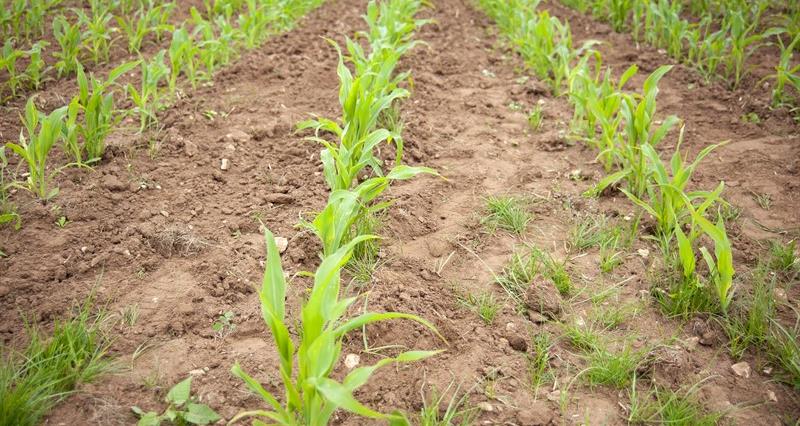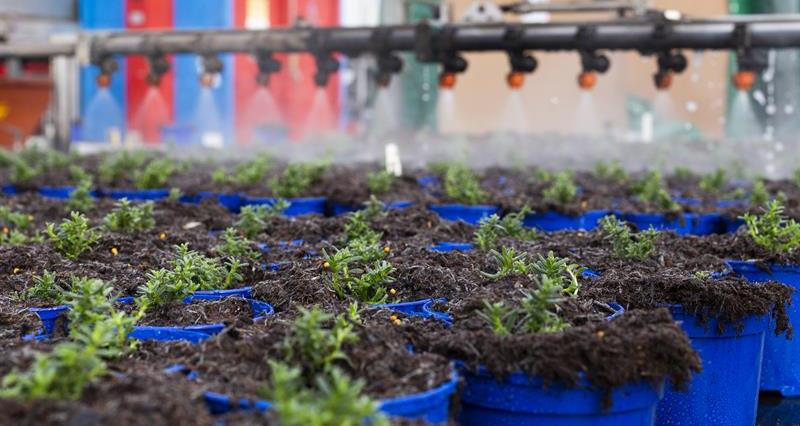Although weather conditions this year have been less favourable for ergot development than last year, an increased presence of sclerotia (ergot pieces) left in the soil from last year's crop means that management for the current and next season’s crop is still critically important.
Ergot (Ceclaviceps purpurea) is a fungal pathogen that affects all cereal crops and a number of other grass species. Infection only becomes apparent during grain formation, where individual grains are replaced by black fungal masses (‘ergots’), up to 2cm in length.
Although posing minimal effect to yield, standards for ergot content are strict, with a zero-tolerance stance taken by most processors.
This is due to the mycotoxins produced by ergot that are highly toxic to both humans and animals. Costly grain cleaning will be required of a contaminated load.
We've summarised our top tips on how to stop the signs and the risk factors for ergot, as well as a brief overview of the AHDB guidance.
What to look out for
Ergot is not a seed-borne disease, however it is associated with contaminated seed.
Although tolerances are very low, ergot may be present in seed bags prior to drilling. The regulatory minimum standard allows for up to 3,000 ergot pieces in a half tonne seed bag, whereas the higher voluntary standard only allows up to 500 ergot pieces in a half tonne seed bag.
The first sign of ergot infection may be the development of honeydew at flowering, which is when spores first enter the ear.
Black ergots that are white inside then form in place of grains, which can be clearly seen in the field. Ergots are harvested with the grain and may be mistaken for rodent droppings in the heap.
Risk factors
Cool and wet conditions during flowering favours spore production, and the presence of host grass species also increases risk of spore spread.
Open flowering wheat varieties, or those with a prolonged flowering period are more susceptible to infection.
Spread and infection
Ergots, either from contaminated seed lots, or that have fallen to the ground from the previous harvest, germinate in the spring and produce mushroom-shaped spore-bearing stroma.
The spores are distributed by the wind to open flowers of cereals and grasses. Spores then germinate in the flowers, causing an infection that leads to development of sticky honeydew.
This honeydew attracts insects which then transfer spores to further plants. Spores can also spread through rain splash and physical contact. Black ergot pieces then form in place of grain during grain formation.
Ergots only survive for around one year on the soil surface, although they can survive longer than this in storage.
AHDB guidance on management strategies
Due to the limited information on varietal resistance and the efficacy of fungicides, guidance focusses on disrupting the pathogen’s lifecycle. The first step in any management strategy is to monitor fields and margins for ergots to determine the initial risk level.
Read the full advice from the AHDB, or the full report for more information.
1. Reduce initial inoculum
- Reduce the use of ergot susceptible species in the rotation – cereal crops from most to least susceptible are rye, triticale, wheat, barley and oats.
- Use appropriate cultivations such as ploughing to bury ergot pieces to at least 5cm.
- Use certified seed, or cleaned home-saved seed.
- Clean machinery after working in infected fields.
- Control grass weeds in non-host and host crops.
2. Reduce infection risk
- Grow a non-cereal crop in high-risk areas.
- Encourage a uniform crop and ensure crop nutrition is adequate.
- Control grass weeds in non-host and host crops.
3. Reduce secondary spread
Control grass weeds using traditional integrated weed management approaches, including control of grass margins, buffer strips and beetle banks. To help develop a weed management strategy, take a look at the Voluntary Initiative IPM plans.
Ergot affects a wide range of grasses, particularly black-grass. As black-grass flowers earlier than cereals, it is a key target for management. Some grass species, such as cocksfoot, couch grass, timothy, tall fescue and tall oat grass, are also a threat to cereal crops, due to their ease of infection and flowering time.
4. Reduce contamination
- Identify and track higher-risk fields/areas (including grass margins).
- Harvest infected areas separately, segregate from other grain and clean equipment afterwards.
- Clean contaminated grain.



